Can high blood pressure be serious enough to kill you? What can be done to prevent it besides antihypertensive medication?
High blood pressure alone does not directly cause death, but serious complications due to high blood pressure can be fatal!
I have seen the highest hypertension in the outpatient clinic, when the blood pressure could not be measured with a sphygmomanometer, and had to be lowered with fluids before the blood pressure could be measured, and this patient was treated and it was not fatal. However, I have personally experienced several deaths due to hypertensive complications caused by hypertension.
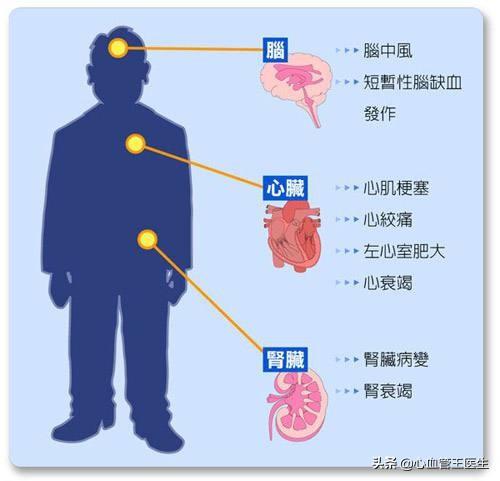
I. Hypertension ---- Aortic Clamping
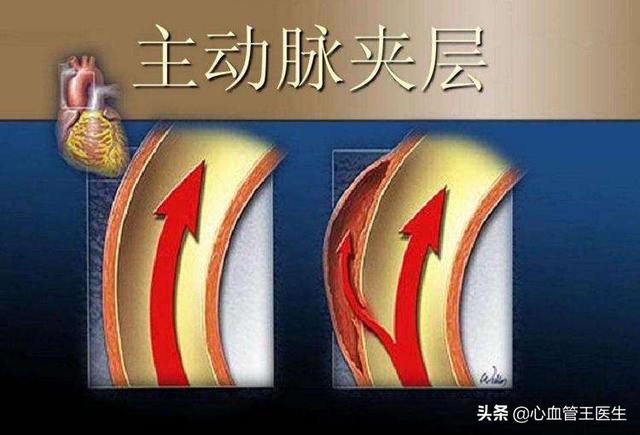
On another night shift, a patient with chest pain came to the emergency room, there was no sign of myocardial infarction on the electrocardiogram, and the blood pressure was very high 220/120 mmHg. Immediately, he checked the chest enhancement CT and confirmed the diagnosis of aortic coarctation. Before further resuscitation, the patient died. Aortic coarctation is a disease with a higher mortality rate than myocardial infarction. Most of the aortic coarctation is related to high blood pressure in some way, a simple understanding is that our body's largest arterial vessels, because of high blood pressure caused by the tear, bleeding, and ultimately too late to rescue, 25% of the aortic coarctation patients will be diagnosed with the diagnosis of death within 24 hours, you say high blood pressure can lead to death?
II. Hypertension ---- Acute Left Heart Failure
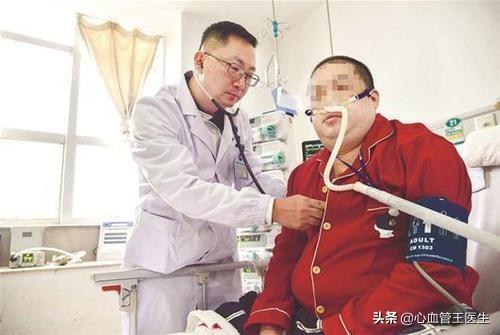
A 55-year-old patient, usually just know that he has high blood pressure, but is not willing to take medication to control, also do not go to measure blood pressure. Suddenly one day, when relieving bowel movement, after exertion, chest tightness and breathlessness, dyspnea, profuse sweating, 120 rushed to the time when the blood pressure of 240/110 mmHg, heart rate of 130 beats / min, typical of acute left heart failure. Sent to the hospital when the person is not working, unconsciousness, facial bruising, breathing weak, even if the force ventilator, even if CPR, but also did not succeed in resuscitation.
Chronic high blood pressure may be asymptomatic for a long time, but the damage is persistent. Chronic high blood pressure can lead to heart deformation and heart enlargement. When the heart enlarges, it leads to cardiac insufficiency, resulting in heart failure, with a 50% mortality rate at 5 years for chronic heart failure, a 50% mortality rate at 1 year for chronic severe heart failure, and life-threatening episodes of acute left heart failure, as in this patient.
Third, high blood pressure ---- stroke
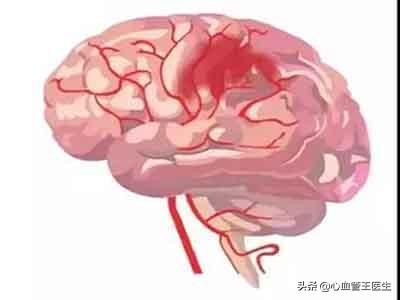
Cerebral hemorrhage has a mortality rate of 30-40% in the acute stage, and the main cause of cerebral hemorrhage is also high blood pressure. Although high blood pressure does not directly cause life-threatening injuries, it can aggravate atherosclerosis and lead to cerebral hemorrhage. In less severe cases, there may be sequelae such as hemiplegia and aphasia, hemiplegia, and prolonged bed rest, while in more severe cases, there may be sudden death or acute death after the onset of the disease.
High blood pressure is also one of the most important causes of cerebral infarction. The initial manifestations of cerebral infarction and cerebral hemorrhage may be the same, and the sequelae may be the same. Although death is not as high as that of cerebral hemorrhage, large cerebral infarctions can also lead to death, even sudden death.
IV. Hypertension ----- myocardial infarction
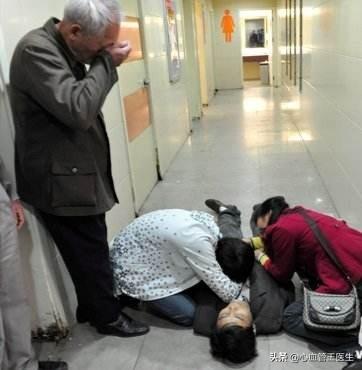
Long-term high blood pressure will lead to aggravation of atherosclerosis, causing plaque aggravation, plaque rupture will form a thrombus, thrombus occurs in the heart blood vessels is myocardial infarction.
10% of myocardial infarctions die on their own on the way to the hospital; 25% of myocardial infarctions before the advent of stents, die even when they get to the hospital; 5-10% of myocardial infarctions die, even with stents and good thrombolytic drugs now.
These are long-term complications of hypertension that can lead to death in the acute phase of the disease. Once hypertension is combined with these diseases, we generally call them hypertensive emergencies, that is, a sudden and significant increase in blood pressure (generally more than 180 /120mmHg), accompanied by progressive cardiac, cerebral, renal and other important target organs, such as the manifestation of functional insufficiency. These include hypertensive encephalopathy, hypertension with intracranial hemorrhage (cerebral hemorrhage and subarachnoid hemorrhage), cerebral infarction, heart failure, acute coronary syndromes (unstable angina pectoris, acute myocardial infarction), aortic coarctation, pheochromocytoma crisis, use of drugs (e.g., amphetamine, cocaine, psilocybin, etc.), perioperative hypertension, preeclampsia, or eclampsia. This is a time when blood pressure must be lowered and resuscitated quickly, or it is critical!
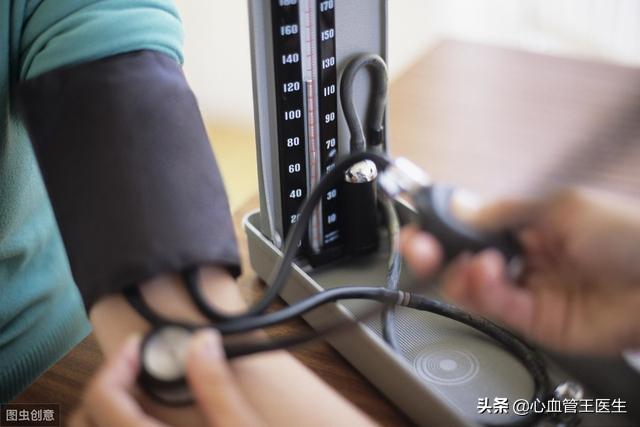
In short, high blood pressure itself may not be as terrible as you think, but long-term high blood pressure is not controlled, once the hair Zhang to all critical heart, brain and kidney macrovascular disease, then it will be life-threatening!
In the face of high blood pressure, of course, the first thing that comes to our mind is antihypertensive drugs, and this is true, because for the vast majority of hypertensive patients, it is true that they have to lower their blood pressure by taking antihypertensive drugs over a long period of time. There are many types of antihypertensive drugs available, and we must choose the right antihypertensive drug for ourselves under the guidance of our doctors.

In addition to antihypertensive medications, a healthy lifestyle actually facilitates the control of blood pressure, or is the basis for lowering blood pressure. For example, a healthy diet, or hypertension diet, is simply understood to mean eating enough vegetables, fruits, and low-fat milk to maintain an adequate intake of ions such as potassium, magnesium, and calcium. At the same time in the diet as much as possible to reduce the amount of fats and oils, especially animal fats rich in saturated fatty acids, and adhere to a low-salt diet, adherence to long-term this hypertension diet, is conducive to hypertension control. In addition to a healthy diet, it is also necessary to cooperate with the adherence to exercise, stay away from smoking and alcohol, control weight, avoid staying up late, reduce stress and so on, which are all conducive to the control of high blood pressure.
Therefore, uncontrolled hypertension can indeed be fatal, and hypertension requires adherence to a long-term healthy lifestyle in addition to antihypertensive medication!
Can high blood pressure be serious enough to kill you? Besides antihypertensive drugs, what else can be done to prevent it? First of all, to answer this question clearly, severe hypertension can cause patients to die, for example, hypertension triggered cerebral hemorrhage, aortic coarctation, myocardial infarction, cerebral infarction and so on, can lead to the patient's death, and in many cases or sudden death. And when it comes to how to prevent hypertension in addition to antihypertensive drugs, I would like to tell you about a patient I just met. The improvement of his condition must have inspired you.

Today a 29-year-old young man on "Good Doctor Online" to find Dr. Zhang consultation, he is Wuhan, his usual daily life is the kind of seldom exercise, often eat takeout, drinking and smoking late at night, weight obesity typical of modern young people. In August last year, he accidentally physical examination found that his blood lipids, blood pressure, blood glucose, uric acid, transaminases are all high, a young man was diagnosed by the hospital "diabetes, hypertension, hyperlipidemia, hyperuricemia," and several other chronic diseases.
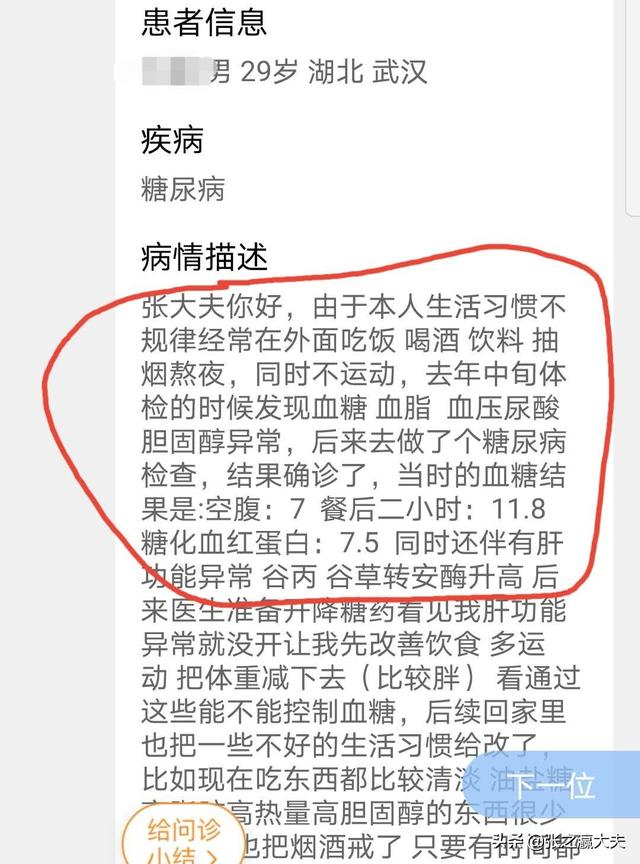
He himself said: these diseases come too fast and unprepared, really catching people off guard. After this, he began to pay attention to health, pay attention to Dr. Zhang, in addition to every day to insist on improving lifestyle, eat light, increase exercise, quit smoking and drinking, do not stay up all night, the most important thing is to insist on watching Dr. Zhang's popular science videos and articles every day. In his own words, "I take Dr. Zhang's popular science as an "alarm clock" and remind myself every day."
Because of the good lifestyle improvement, his weight dropped by 30 pounds in August this year, and when he did the physical examination again, he found that his blood lipids, blood pressure, and blood glucose had all returned to normal. Especially blood pressure stabilized at about 120/80mmHg, and he no longer need to take any drugs, blood pressure has been able to control quite well. During the online consultation, he said excitedly, "Thank you, Dr. Zhang, I really didn't expect my blood pressure to return to normal without medication, it's not easy, I'm so happy. I hope that through my experience so that more young people see, reflect on the unhealthy lifestyle, can have a good body!" In fact, the main reason for saying this example is to tell you the importance of a healthy lifestyle, a healthy lifestyle can indeed make our blood pressure healthier and to a certain extent.
However, we are also reminded that such cases are rare, and that it is true that blood pressure can be brought back to normal entirely by improving lifestyle, but it is relatively rare, and that most people who have been found to have high blood pressure still need regular treatment, and can't rely entirely on improving their lifestyle.
Friends, it's time to help Dr. Zhang hit the list. It's free to beat the list, no need to spend money, and you can also draw iPhone12, it's time to show your prowess!
Voting method: open my home page to vote or long press the following picture to identify the "QR code", and then click on the 10 "for him to help" vote, each person can vote 110 votes per day (10 consecutive clicks to help, log in to the headlines can vote 50 votes + do tasks) (you can vote 60 votes by logging into the headline and doing tasks)
Voting period: October 30 - November 8

Thanks for the invitation!
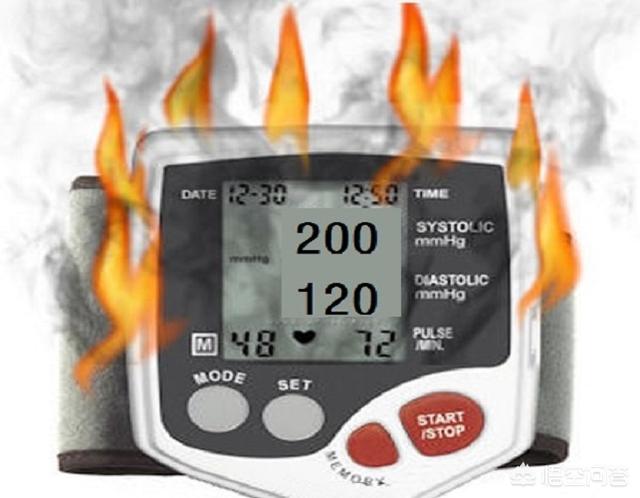
Can high blood pressure be severe enough to kill you?
High blood pressure does not directly cause death.
But, hypertension is the number one killer of human deaths globally!
What is "severely elevated blood pressure"?
Blood pressure is the pressure created by blood against the walls of blood vessels and is simply a physiological parameter of the body.
The so-called hypertension is an elevated blood pressure value as a parameter.
Therefore, it does not directly lead to death.
What is "severe hypertension" or "severely elevated blood pressure"?
There is indeed a concept of "severely elevated blood pressure" in medicine. It is generally recognized that when the blood pressure is severely elevated, >180/120 mm Hg, there is a possibility of serious, fatal episodes of disease, and therefore it is referred to as a condition requiring emergency treatment.Hypertension emergency(Hypertensive Crises).
Hypertension emergencyIt can be further divided into two cases:
hypertensive crisis(Hypertensive emergencies), defined as severe blood pressure > 180/120 mmHg with new target organ damage or worsening of old target organ damage.
A hypertensive crisis means that blood pressure needs to be recognized first and lowered quickly, often requiring transfer to an intensive care unit (ICU) to lower blood pressure via intravenous infusion of antihypertensive medication.
This is because hypertensive crises, if not treated urgently, can lead to fatal complications such as cerebral hemorrhage, cerebral infarction, ruptured aortic aneurysm (entrapment), cardiac infarction, acute left ventricular failure, pulmonary edema, acute renal failure, and eclampsia; and, overall, if left untreated, the 1-year mortality rate is > 79%, with an average of less than 1 year of life (10.4 months(See Section 2.1.2.).
hypertensive emergency(hyperpertensive urgencies), areSevere elevated blood pressure, > 180/120 mmHg, but assessedA condition in which there is no acute or impending target organ damage or dysfunctional changes and the patient is stable.
For patients with hypertensive emergencies, they do not need to be transferred directly to the ICU for intravenous antihypertensive therapy as in hypertensive crises, but can receive an oral antihypertensive drug-based regimen.
In short, if you find yourself or someone close to you with a blood pressure > 180/120 mmHg, go to the hospital at the first opportunity and receive emergency treatment, never take it lightly.
Global Burden of Disease Study: Hypertension Causes Most Population Deaths
Although, high blood pressure doesn't kill you directly, it can do so by causing heart and brain,vasculatureand damage to organs such as the kidneys, triggering the onset and onset of fatal diseases such as heart attacks, strokes, and kidney dysfunction resulting in death.
And, is now the number one risk factor for human mortality worldwide, causing over 10 million deaths each year.
According to the world's latest, Global Burden of Disease Study 2017 report, the global population died in 201755.9 million, of which more thanHalf (51.5 percent, or 28.8 million deaths) were caused by the top fourRisk factors cause: high blood pressure, smoking, high blood sugar and high body mass index.
High blood pressure is the number one risk factor, causing 10.4 million deaths, followed by smoking, which causes 7.1 million deaths, high fasting glucose, which causes 6.5 million deaths, and high body mass index, which kills 4.7 million people.
The Global Burden of Disease Study is a global estimate of the burden of disease made by the University of Washington's Institute for Health Metrics and Evaluation (IHME), in collaboration with 3,500 experts from 140 countries, through an assessment of 195 countries and territories, 280 causes of death, 359 diseases and injuries, and 84 risk factors.
Global Burden of Disease studies in recent years have consistently shown that hypertension is the number one risk factor for death in the global population.
The risk is not only in the case of "severely elevated" blood pressure, but also in the case of blood pressure above 120/80 mmHg, or even above 115/75 mmHg.
What can be done to prevent this besides antihypertensive medication?
That's a big topic for non-pharmacologic ways to control blood pressure to prevent hypertension damage ah.
In brief, this can be summarized as follows:
1. Maintain a healthy weight, overweight/obese need to lose weight.
2. A healthy diet, primarily rich in vegetables and fruits and low-fat dairy products, can provide a diet rich in potassium, calcium, magnesium and dietary fiber.
3. Strictly limit sodium intake, including, but not limited to, dietary sodium, i.e., a low-sodium diet.
4. Potassium supplementation, preferably in adequate amounts through the dietary route, as potassium is a good antagonist of the pressor-raising effect of sodium.
5. Structured physical activity, to lower blood pressure, requiresattainmentIncludes aerobic exercise, dynamic resistance (e.g., jerking iron, push-ups, etc.) training, and static isometric exercise (e.g., planks) in the form of exercise ofA combination of certain exercises.
6. It does not take much to stop smoking and drinking. If there is one more thing that needs to be said, it is to drink alcohol. Drinking alcohol does not lower blood pressure, it only raises it and increases other risks.
Let me answer this question. Although I am not a doctor, I am a high blood pressure patient and know a lot about high blood pressure disease. In recent years hypertensive diseases, tilted towards people around 40 or 50 years old, and lead to cerebral hemorrhage, cerebral infarction, which is a serious threat to one's life.
High blood pressure is a very difficult disease to treat, like a dog skin plaster, stuck, can not be shaken off, every day you need to use the drug, a day does not use, it will naturally rise. It is possible that this disease will stay with a person for the rest of his or her life.
When the blood pressure is high to a certain degree, the cerebral blood vessels can not withstand the expansion force, it will rupture, subarachnoid hemorrhage, brain stem hemorrhage, is the most dangerous phenomenon of cerebral hemorrhage, at any time life-threatening, even if you can live, may cause paralysis, hemiplegia, eye slanting and mouth crooked, or even become a vegetable.
I have two old folks, not too old, fifty years old, usually busy with work, hypertension did not pay much attention to the disease, the result triggered a serious cerebral hemorrhage, one of them, hemorrhage, close to the brain stem, did a second major surgery, and finally became a vegetative person, lying in the hospital for half a year, spending hundreds of thousands of dollars, but the result is still no return to heaven, and left his body.
Another old fellow, also high blood pressure triggered a brain hemorrhage, the bleeding is not big, but the pressure on the nerves, paralyzed, after many hospitalizations, his wife's meticulous care, to help him massage, three years later, finally stood up. Although his health has improved, he can't do any work. He can only continue to recuperate.
Netizens, must pay attention to high blood pressure, it is an invisible killer, time bomb, do not know when it will explode. With high blood pressure, you have to take your medication on time, you can't take it and stop it, it's not very effective. But also every two or three days, measure the blood pressure, see whether to reach normal (I3O a 90).
To be honest, high blood pressure is very difficult to prevent, do not eat meat, do not drink alcohol, eat less salt, usually can not completely do, do not eat salt, the human body can not stand. Sometimes you don't eat anything, but the blood pressure is still high. But try to eat less food to make blood pressure rise, or to take antihypertensive drugs.
First, of course, when high blood pressure is severe, death, the following breakdown, high blood pressure several ways of death
1. Acute deaths
A sudden and dramatic increase in blood pressure greater than 180/110 mmHg is called a hypertensive emergency. A sudden rise in blood pressure is highly likely to lead to cerebral hemorrhage, aortic dissection, and acute left heart failure.
2. Chronic death
Hypertension is serious, poorly controlled blood pressure, it is easy to atherosclerosis, this time if the blood pressure fluctuation is very strong, it is easy to plaque rupture, which occurs in the blood vessels of the heart, it is manifested as myocardial infarction, which occurs in the cerebral blood vessels manifested as cerebral infarction. Both diseases will die if not treated in time.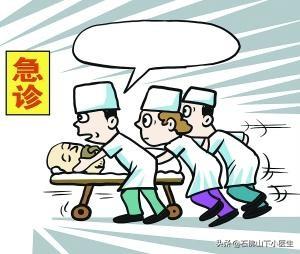
Second, in addition to drugs, high blood pressure can also be how to prevent
Drugs for lowering blood pressure can be broadly categorized into four main groups, A, B, C, and D. These are ACEI/ARB, beta blockers, calcium channel blockers, and diuretics. Although, there are many drugs, none of them are perfect and all of them have side effects.
Besides antihypertensive drugs, what else can be done to lower blood pressure? The main thing is to improve the lifestyle, which is the basis of all hypertension treatment. This includes: 1. Dietary aspects of low sodium and high potassium diet. 2. Adherence to exercise 3. Regular work and rest .
Although lifestyle improvements can lower some blood pressure, they are clearly not enough for patients with secondary and tertiary hypertension, and ultimately end up on antihypertensive medications.
I have to admit that although the antihypertensive drugs are not good for this and that, but you still have to use them when you have high blood pressure.
High blood pressure can be severe enough to kill the patient.
Hypertension as the name suggests is elevated blood pressure, long-term elevated blood pressure is an invisible killer, and lead to cardiovascular, cerebrovascular and renal damage, and lead to heart failure, cerebrovascular accident, kidney failure and death.
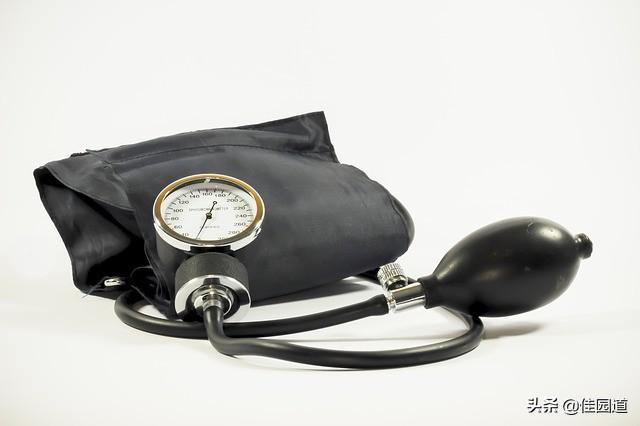
Some hypertensive patients in a short period of time a sharp rise in diastolic blood pressure more than 130 mm Hg, the condition of the storm as a sharp aggravation of the progress of the patient will be irritable, severe headache, blurred vision, hemorrhage in the fundus of the eye, if not timely lowering of blood pressure treatment, it can lead to cerebral hemorrhage, cerebral thrombosis, acute cardiac failure, acute renal failure, hypertensive crises, hypertensive encephalopathy, which can be thus which can lead to the patient's death.
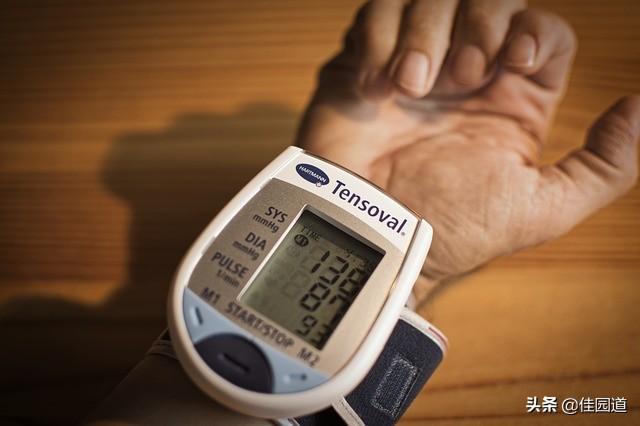
What are the measures that can be taken to prevent and lower blood pressure in addition to the use of antihypertensive drugs?
1, quit smoking and drinking, if really can not quit smoking and drinking in moderation, not too much.
2. Limit salt intake.
3. Eat more fresh fruits and vegetables rich in potassium and calcium salts as well as milk.
4, reduce or limit the intake of high animal fat, high cholesterol diet, weight control, to avoid obesity.
5, increase aerobic exercise, you can choose to play tai chi, walking or jogging, do gymnastics and so on.

It was explicitly told that hypertension could lead to death in severe cases, and that uncontrolled hypertension could cause serious cardiovascular and cerebrovascular events such as acute myocardial infarction and stroke, and that failure to resuscitate the patient in a timely manner could lead to death.
Blood pressure should be kept within the target range, 140/90mmHg for general patients, 130/80mmHg or less for patients with combined kidney disease and diabetes, and 150/90mmHg or less for elderly patients. In order to achieve the blood pressure target, taking antihypertensive drugs on time as prescribed by the doctor and several other aspects are also very important.
1. Dietary attention, limit the amount of salt, no more than 6g a day, which is a beer cap, thinking that salt can make blood pressure rise.
2. pay attention to rest, modern society, irregular work and rest, stay up late is more common, life, some people stay up a few nights in a row, the blood pressure rose violently, this example is more.
3. Relax, do what you need to do, complete your daily work and tasks in a step-by-step manner, and relax your mind. Usually encounter anxiety rest bad patients, taking five antihypertensive drugs, blood pressure is still difficult to fall.
4. Weight control. For every 5-10kg of weight loss, blood pressure decreases by 10-20mmHg, so weight control is very important.
5. Finally, and still emphasizing the point, don't stop your antihypertensive medication at will!!!!
Many people with high blood pressure have no symptoms and do not take it seriously, however, when an emergency occurs, the consequences can be severe!
Death can occur when the condition of hypertensive patients is serious, especially for those hypertensive patients who do not pay attention and do not undergo standardized treatment, with the progression of the condition, cerebral hemorrhage, cerebral infarction, myocardial infarction, aortic coarctation, and other serious complications, and the lack of timely treatment can lead to respiratory and cardiac arrests and sudden deaths, which is a serious threat to our physical health.
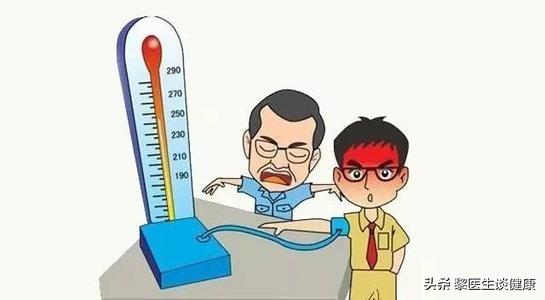
Hypertension is a very common chronic disease in our life. It is a syndrome in which the blood pressure level rises persistently above the normal range due to various reasons and can be accompanied by complications in target organs such as heart, brain and kidney. Hypertension mainly includes two categories: primary and secondary, of which secondary hypertension is relatively rare, but the etiology is clear, and after active treatment of the underlying disease, blood pressure can often return to normal, or even reach a cure. Primary hypertension is the most common type of hypertension, the specific pathogenesis is not clear, once diagnosed, long-term standardized treatment is required to stabilize blood pressure control and reduce the occurrence of complications.
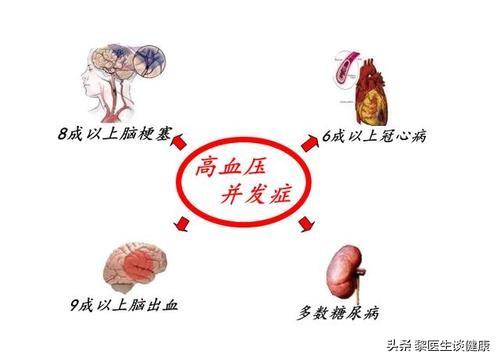
For the treatment of hypertension, there is no shortcut to go, we must follow the guidance of professional doctors, in which lifestyle intervention should be carried out throughout the treatment, at the same time must be used in conjunction with the use of blood pressure-lowering drugs, the reason is that patients with hypertension have persistently elevated blood pressure, and the simple lifestyle intervention is often difficult to effectively reduce blood pressure, so attention should be paid to the use of blood pressure-lowering medication, blood pressure-lowering medication to be individualized, and need to be adequately assessed the condition of the selected The use of antihypertensive drugs should be individualized and need to be selected after full assessment of the condition, recommending long-acting treatment or combination preparations, and paying attention to monitoring changes in blood pressure levels and regular reviews, and adjusting the treatment plan under the guidance of the doctor.

Hypertensive patients need to take medication regularly along with strict lifestyle interventions, such as low-salt diet, smoking cessation and alcohol restriction, appropriate exercise, weight control, regular work and rest and maintaining a good state of mind. A few patients with essential hypertension can control their blood pressure up to the target level without even taking medication under the strict lifestyle interventions, so that for newly diagnosed essential hypertension, if the blood pressure level does not exceed 160/100mmHg and there are no other complications or cardiovascular risk factors, the patient can continue with lifestyle interventions if the patient agrees. 100mmHg, and there are no other complications or cardiovascular risk factors, if the patient agrees, he/she can consider pure lifestyle intervention first, for a maximum of three months, and if the blood pressure level can be controlled within the target range, he/she can continue with the lifestyle intervention, or he/she will need to start blood pressure-lowering medication in a timely manner.
I hope this article can help you, if you have any questions, welcome to leave a message at the end of the article and discuss together.
This article was originally written by Dr. Lai on Health (formerly GP Sweeper).
Follow @DrLeeTalksHealth for more health knowledge.
What exactly are the dangers caused by high blood pressure?
1. Heart attack
People with high blood pressure are more likely to develop heart disease than people who don't have high blood pressure. Over time, high blood pressure causes scars on the walls of the arteries, and these scars narrow the arteries, which stops blood from flowing. If enough blood is blocked, a heart attack can occur, which can lead to the death of part of the heart muscle, and up to 70% of people who have their first heart attack suffer from high blood pressure.
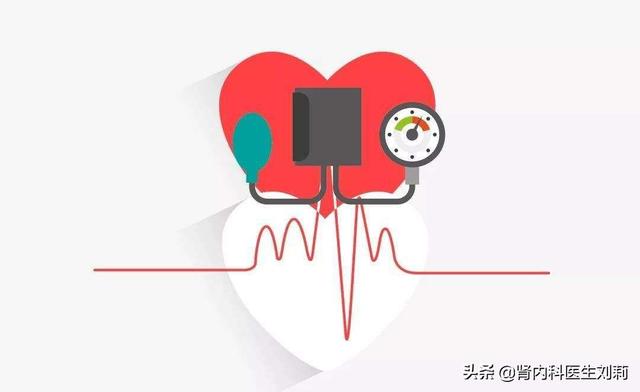
2、Blood coagulation
Arteries caused by high blood pressure are often narrower than normal, which can cause blood cells to stick together to form blood clots. Blood clots can stop the flow of blood to the parts of the body that need it; a clot that stops the flow of blood to the brain can cause a stroke, and a blood clot that stops the flow of blood to the heart can lead to a heart attack.
3. Kidney damage
High blood pressure can also damage the blood vessels in the kidneys. If enough damage occurs, the kidneys can't work properly, which means the kidneys can't process excess fluids and wastes in the body. The buildup of excess fluid can lead to higher blood pressure, which creates a dangerous cycle. Over time, the kidneys may stop working altogether, at which point kidney failure occurs. High blood pressure is a common cause of kidney failure.
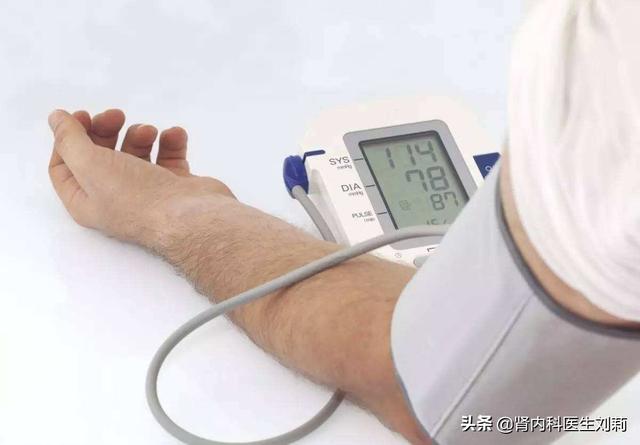
4. Hypertension in pregnancy
Some women who have never had high blood pressure may develop high blood pressure during pregnancy, called gestational hypertension. It usually goes away after pregnancy, but high blood pressure during pregnancy should be treated promptly. High blood pressure can harm the mother's body and also affect the baby, who may be underweight or born prematurely. Stillbirth is also possible due to high blood pressure during pregnancy.
5. Heart failure
Heart failure occurs when the heart weakens and cannot pump enough blood into the body. Untreated high blood pressure can lead to heart failure, and that's because high blood pressure puts a greater burden on the heart. Over time, this can damage the heart's muscles and valves.
These are more serious health problems that should not be ignored and some are even fatal. Controlling high blood pressure levels is not impossible, starting with a healthy diet and keeping your mouth shut is the first step, as well as a number of blood pressure lowering medications that can be very effective.
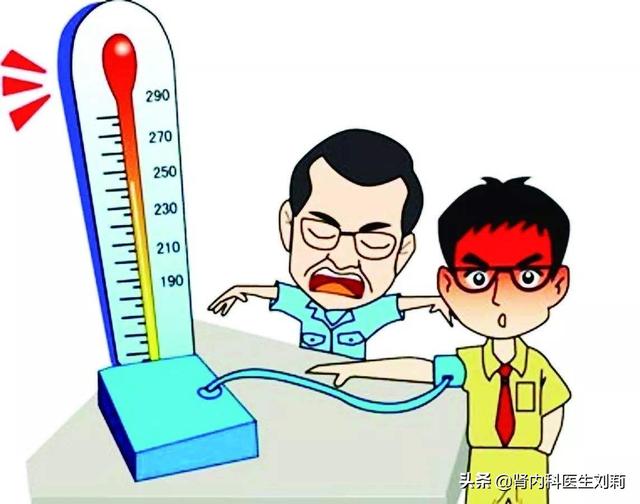
Tips for effective control
1. Reduce salt intake: Daily salt intake should be less than 5 grams per day, about ½ of a small tablespoon per day.
2, reasonable diet: diet should limit fat intake, eat less fatty meat, fried food, animal offal, pastry, sweets, more fresh fruits, vegetables, fish, mushrooms, low-fat dairy products.
3. Weight control: the most effective way is to moderate diet and reduce the total calorie intake per day; increase physical activities, including fast walking, jogging and swimming.
4, quit smoking and limit alcohol: tobacco contains nicotine, can stimulate the heart to make the heart beat faster, and make the blood vessel contraction, blood pressure rise. Drinking a lot of alcohol, especially strong alcohol, can make the heart beat faster and increase blood pressure.
5, physical activity: appropriate physical activity can enhance physical fitness, weight loss and maintenance of normal body weight, each activity is generally 30 to 60 minutes appropriate, the intensity varies from person to person, according to their ability.
Most people may recognize hypertension as a clinical symptom of elevated blood pressure, but there are many other organ injuries behind elevated blood pressure.
Many hypertensive patients generally have no special clinical manifestations, often found during physical examination, a part of the person will appear dizziness, headache, neck muscle tension, fatigue, palpitations, etc., any discovery, there may be retinal hemorrhage; hypertensive heart disease, serious arrhythmia, heart failure, and even sudden death; malignant hypertension, causing renal failure; strokes and so on.
In addition to taking medication, we also need to eat a healthy diet, low-salt, low-fat, low oil, so that blood sugar, blood lipids to maintain normal, to avoid emotional stress, winter blood pressure is easy to rise, especially in the morning to get up after the activity of the blood pressure will rise rapidly, so we should avoid strenuous activities during this period, quit smoking and drinking, and regular testing of blood pressure.
This question and answer are from the site users, does not represent the position of the site, such as infringement, please contact the administrator to delete.